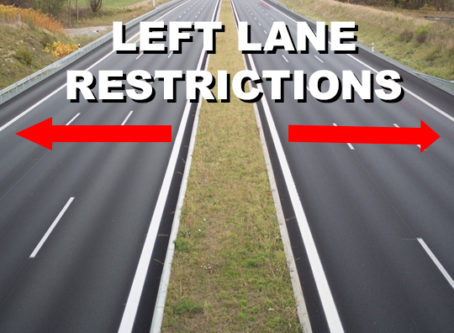Ticket camera rule changes approved, pursued in six states
State legislatures around the country continue to discuss and take action on the use of automated cameras to ticket drivers.
More than 500 communities around the country employ the use of red-light or speed cameras to nab drivers who disobey traffic rules, the Insurance Institute of Highway Safety reports.
Officials with the Owner-Operator Independent Drivers Association say the focus on the revenue-generating devices ignores the more logical and reasoned approach to roads and traffic: keep traffic moving in as safe a manner as possible.
Pennsylvania is one of the most recent states to take action on the issue. Effective this fall, speed cameras can be posted in active work zones on interstates and federal aid highways.
The 2018 law permits a five-year pilot program enabling the Pennsylvania Department of Transportation and the Turnpike Commission to post speed cameras along affected roadways.
Advocates said changes are needed to driver behavior in work zones, and motorists need to be reminded to slow down in affected areas.
In addition, a legislative analysis reports the cameras could raise in excess of $30 million annually with the state’s take being allotted to the Pennsylvania State Police, PennDOT, Pennsylvania Turnpike Commission, and Motor License Fund.
Opponents said instead of resorting to automated enforcement cameras they would rather see police officers posted in work zones. They also note that officers can monitor other dangerous driving behaviors.
The issue of automated cameras used to ticket drivers is a continuing topic at statehouses from Maryland to Hawaii. Below is a sampling of legislation being followed by Land Line.
Hawaii
A measure close to passage at the statehouse would complicate enactment of red-light camera enforcement systems for counties.
House lawmakers have approved a version of the bill to setup a committee to develop policies for counties to follow before the ticket devices can be installed along their streets. The same requirement would be applied for the city of Honolulu.
The Senate previously approved a version of the bill to permit counties to set up red-light camera enforcement systems.
The bill, SB663, has moved to a conference committee made up of select members from each chamber to work out their differences. If legislators are successful in reaching a compromise, the bill would head to the governor’s desk.
Maryland
One year after Gov. Larry Hogan signed into law a bill to authorize the Fort Washington area to use one speed camera on state Route 210, or Indian Head Highway, another bill headed to his desk would revise the rule.
Maryland law now limits use of speed cameras along state highway work zones and in school zones. Montgomery County is also permitted to use the ticketing mechanism in residential areas.
The one-year-old law permits one speed camera along Route 210 in Prince George County at the intersection with Old Fort Road.
HB187 would expand the rule to apply to any intersection on Route 210 in Prince George County.
The House and Senate have approved the bill clearing the way for it to move to the governor’s desk.
North Carolina
One bill moving through the House would revise rules on the use of red-light cameras in multiple Cumberland County locales.
State law already permits 19 cities around the state and the municipalities in Union County to use the ticket tool cameras.
H105 would permit the towns of Hope Mills and Spring Lake to use red-light cameras.
Fine amounts in the two towns, and in the city of Fayetteville, would be set at $100 – up from the current $75 fine. The remaining communities would continue to collect $75 fines.
Ohio
Gov. Mike DeWine earlier this month signed into law a two-year, $8 billion transportation budget. Among the issues addressed in the budget is use of ticket cameras.
One provision in the bill is intended to discourage local governments’ use of red-light and speed cameras. Specifically, the state can withhold tax revenue-sharing dollars from locales that employ the automated ticketing devices.
Cities that issue citations from camera enforcement systems would be responsible for paying court costs and fees, even when a city wins an appeal. Previously, vehicle owners were on the hook for the costs.
Oklahoma
A bill advancing through the statehouse covers the use of red-light cameras. Currently, there is no community in the state that employs the ticketing mechanism.
Senate lawmakers voted 46-1 to approve one bill to prohibit the use of the cameras for all law enforcement agencies in the state. The House Public Safety Committee most recently voted to advance SB260 for further consideration.
Texas
A slew of Texas legislators have introduced bills this year that address the use of automated enforcement throughout the state.
According to the Insurance Institute of Highway Safety, there are 54 communities throughout Texas that employ red-light cameras. At least six towns have outlawed use of automated ticketing programs.
Currently, fines for running red lights at monitored intersections in the Lone Star State cannot exceed $75. Failure to pay can result in offenders being barred from renewing their vehicle registration.
The lone bill on the issue to advance for a possible floor vote is intended to take any remaining teeth out of the law. HB901 would prevent county assessor collectors and the Texas Department of Motor Vehicles from refusing to register motor vehicles, or transfer vehicle title, because of unpaid camera tickets.
Advocates say withholding registration adversely affects the state and a county’s revenue stream for road and bridge maintenance all so a civil fine owed to a municipality could be collected.









